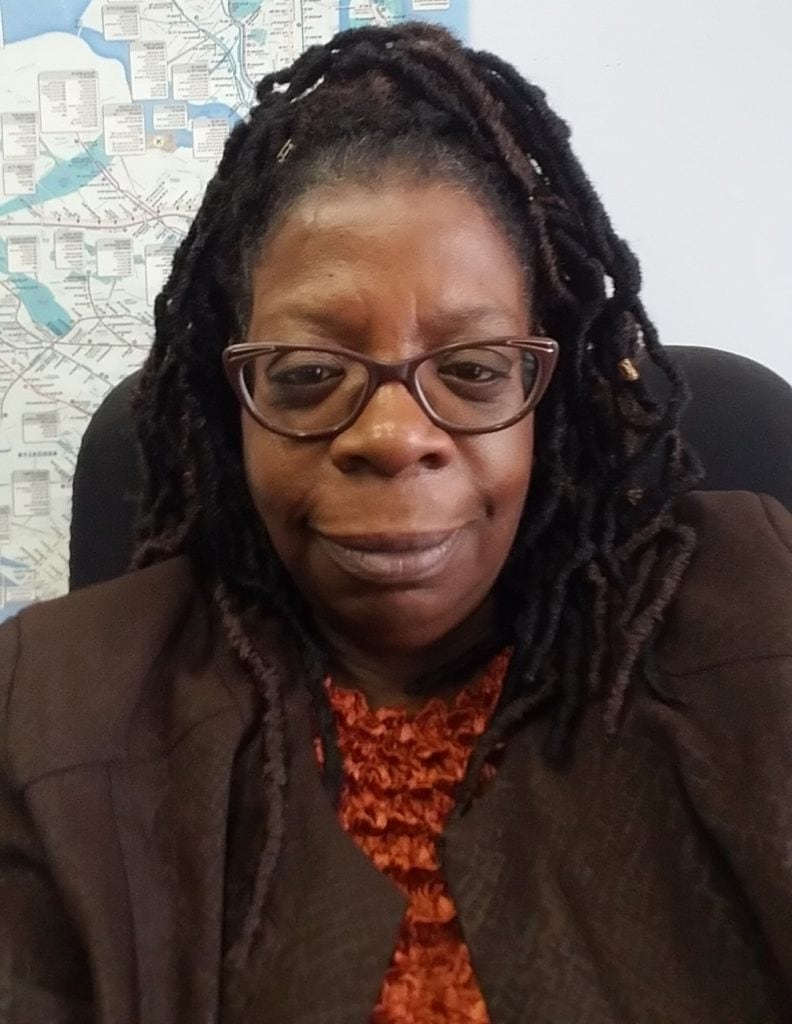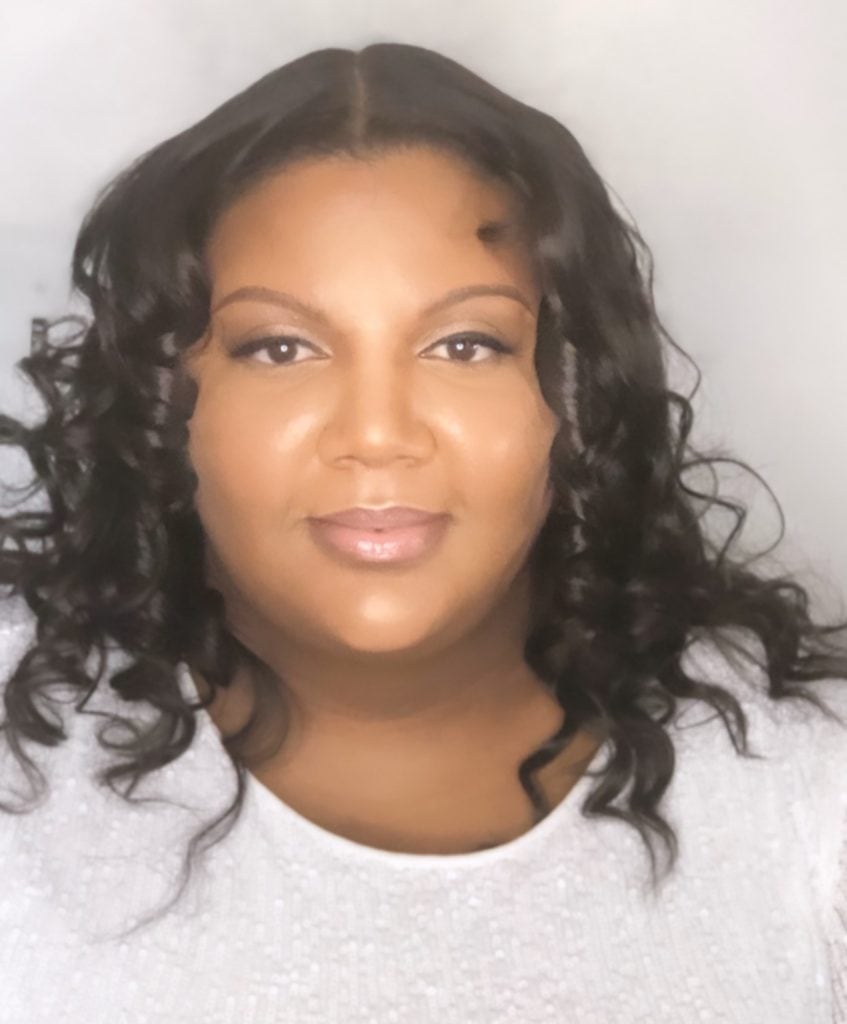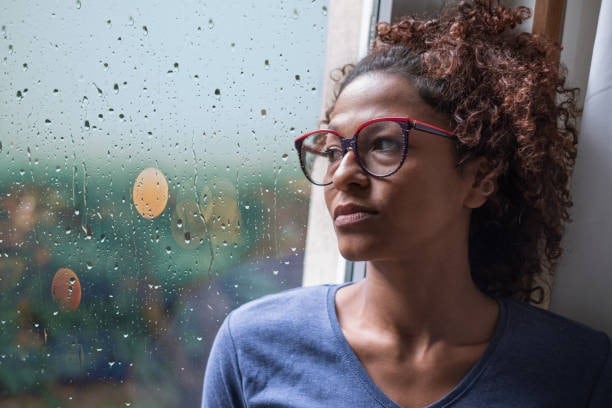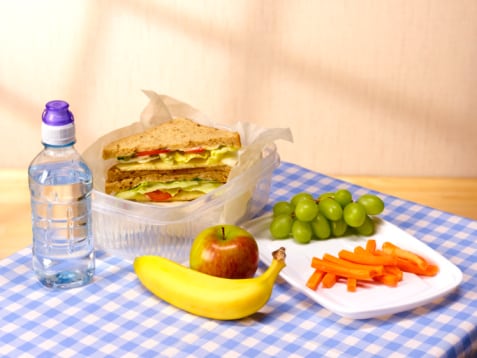Expert advice on calming your nerves and getting through these tough times.
In her 27-year career as a 911 operator and supervisor in New York, Cynthia Perry has been through a lot, including coming to the aid of a broken city in the aftermath of 9/11. “But this,” she says of the COVID-19 pandemic, “this is something I’ll never forget.”
“This disease … this thing is a beast. Some people self-quarantine and they are fine; others are diagnosed and they are just gone. Another neighbor just passed away, and I just got a text that another co-worker had passed.”
First responders and medical service workers around the country are enduring once-in-a-lifetime encounters with stress. But as an essential city worker who cannot consider working at home, Perry is also representative of the disproportionate number of black women whose work requires they face the reality of the pandemic in some way, whether at work or at home.
“It’s dealing with the emotional aspect of this on top of the job stress,” says Perry, who is often working double, day/night shifts. “It’s just the number of people who are dying.”
On the day that we spoke, she and her co-worker had just completed a grim tally of the calls from the last 30 days. “From March 14th to April 14th, 4,695 New Yorkers had died at home,” Perry says. A number far larger than any they had ever seen. “I have my faith, but this shook me.”
Embracing Reality to Heal
Perry, who is in her 50s, is still pulling double shifts, just what we have come to expect from each other as black women. Retirement, she says, is still a few years away. As she, and women like her persevere in the face of COVID-19, we still must remember to “push back against the black superwoman trope,” says Riana Elyse Anderson, Ph.D., a psychologist who specializes in racial stress and trauma, and a professor at the University of Michigan.
“Telling yourself to ‘keep it moving, no matter what,’ as black women may do, is a disassociation from what may really be going on,” says Anderson, who admits that at first, she put her own condition “in the background,” when she began having early symptoms of COVID-19. “My case was mild, but I found myself surprisingly overcome with grief over an unrelated matter a few days ago. That grief was going to get out somewhere.”
To other women, Anderson advises, first, “allow yourself to acknowledge that we are in a crazy time. Go ahead and lament what you may have lost. Go ahead and cry.”
“As great as New York City is, we were not prepared for this,” Perry says. “My dear friend works at Downstate Medical Center, and she was just crying into the phone. She said: “This is just a war zone. There’s just no reason why nurses and doctors don’t have personal protective equipment (PPE).”
Faced with scenarios like this, we may feel that anxiety is impossible to manage. “No one can say that this is not awful,” says Angela Neal-Barnett, Ph.D., a psychologist and the author of Soothe Your Nerves: A Black Woman’s Guide Understanding and Overcoming Anxiety, Panic and Fear.
Yet, Barnett, an expert in anxiety disorders, offers some comfort, explaining that the crushing pressure that we experience as anxiety “will only go so high. It will peak, and then allow you to do other things and move forward.”
Guarding Against Our Unique Risks

“I’m OK, and then I’m not O.K. This is so stressful and we [black people] already have underlying health conditions,” says Deborah Williams, who is working at home in Brooklyn for New York City transit. “This just came down like a ton a bricks on us. I’m worrying about my mom who just turned 89 on April 17th, and she’s in a nursing home. Sometimes I just find myself crying about this whole thing.”
Adding to William’s worries, her husband, an engineer, works at nearby Brookdale Hospital. He does not see patients and he gets personal protective gear, but when he comes home, they both worry about handling his clothes. She also worries about her brother who is still working and going out every day.
Again, Neal-Barnett emphasizes the importance of recognizing and accepting our feelings. “What often happens with black women is that statistics show our rates of anxiety disorders are lower than other groups, but that is because we are not counted and less likely to seek help. In fact, we have anxiety and depression for longer periods of time than others and it is more intense,” she says. We are also subject to higher rates of post-traumatic stress disorder.
“It’s just that anxiety and frustration can become so much a part of our daily lives that we don’t even notice that we do not feel well. Black patients will say, ‘You mean I’m not supposed to feel this way all the time,” adding that anxiety can also be expressed as anger and frustration.
The triple burdens of poverty or struggling to stay middle class, higher rates of single parenthood and gender discrimination, mix with racism to produce constant challenges to the mental health and well-being of black women. To overcome it, we must begin by allowing ourselves to admit it exists, even though managing the unmanageable is so much a part of our legacy.

“I’m O.K. because I’ve worked in this environment so long,” says Latoya J. Lockett, R.N., a manager of health-care services at a New Jersey correctional facility. “I’m most concerned about my son. He goes nowhere right now. He is 12, so he is going to touch things and touch his face. He is also an asthmatic. A few weeks ago, both of us got sick and it was very scary because we didn’t know what it was, though we recovered,” says Lockett, who is a single parent.
At work, Lockett’s load has also increased, but so far she is rolling with it. “It’s a stressful environment anyway,” she says, “but with Centers for Disease Control recommendations constantly changing, every day it’s something different. I used to go home from work, and I was done with it. Now, I have to get ready for what’s coming the next day,” she says recalling a recent evening spent analyzing 26 pages of new guidelines.
Lockett also says she sees the stress experienced by her primarily black nursing staff. “This pandemic is a nightmare for us. Our staff is operating out of fear. Some are not coming to work. I understand that they are afraid. They are just overwhelmed.”
Of her own coping skills, Lockett, 36, who says she chose nursing and corrections to be sure she would always have a good job, explains: “for me, it’s business as usual. I know what it’s like to have and not to have. There’s no way I can stay home, I have to go work. It’s also my culture. It’s the way I was raised.”
Emerging Emotionally Healthy and Whole
Even for women free of potential, daily exposure to the virus, the pandemic may bring a sense of loss unlike anything else we have known. “I notice, when I do go out to food shop, the way people are turning their heads away from each other. It feels if we are becoming more distant,” says Shelley Cecile Sheppard, who is working at home in Washington, D.C.
Widowed just a year ago, Sheppard is an avid skier, but this year, she missed the large National Brotherhood of Skiers gathering in Idaho. Just weeks later, she heard that more than 100 of the thousands of attendees, many her old friends, had since tested positive for COVID-19 and some had died.
“I can’t really watch the news too much anymore,” Sheppard says, “and now I worry about a sore throat or if I wake up with a headache. But the thing I miss most is the human connection.”
Acknowledging how tough it is to watch the news every day, as well as “the building sense of isolation,” Dawna Maria Bivins-Smith, PhD, a clinical psychologist, says we should take some comfort in the idea that we each have the tools we need to feel better, although better may not look like what it did before. (See “At-Home Resources for Overcoming Anxiety and Stress,” below.)
“The things that help us cope are not magic,” says Bivins-Smith, author of Control Your Crazy: Work the Good. Tame the Bad and Ugly. “Our brains are actually geared up to help us.” At times like this, it is all the more important to look for joy in simple things. “When you do positive things, like hugging your kids, praying, meditating or just indulging in thoughts about all of the positive things you still have in your life, you are using your power to heal, to feel better.”
“Think of hopefulness as a coping tool,” Anderson adds. “This is a time to get used to Zoom, reach out to friends and engage with community. And always ask yourself, ‘What I can do today to take care of myself?” whether its reaching out for help, taking a long walk or allowing daydreams about a new and better future. Brighter days will come.
Sheree Crute is editor and co-founder of Fierce.
At-Home Resources
For Overcoming
Anxiety and Stress
Managing stress does not have to mean medication or going out to a therapist. Psychologists Angela Neal-Barnett and Ph.D., Dawna Maria Bivins-Smith, Ph.D., offer this advice:
• Shut down an anxiety attack. “If you are feeling overwhelmed by stress and anxiety, lay on your back, knees up, feet on the floor (or other flat surface), then just breathe for five minutes. Nothing else,” Neal-Barnett says. Stress has a dampening effect on the brain, so that you can’t think clearly. This will allow you to get past that point.
•Use this free, guided meditation. Go to WellsmithLife.com, and click on the Relaxation Moment download. Bivins-Smith’s soothing voice will lead your through a very short meditation you can do at work or at home.
•Set your limits. “Part of the problem with the situation we are in is that people are faced with so many tough choices,” Neal-Barnett says. Once you calm your nerves a bit, sit down with a piece of paper and decide what you can and cannot do, she advises. Allow yourself to walk through each scenario — such as resigning from a dangerous job. What would that look like? Is it doable? Do I have savings? How long will they last? What help can I seek?
“Many landlords, credit card and mortgage companies and utility companies are deferring payments,” she says. “If finances are the source of stress, for example, don’t panic, call and see what’s possible and make a plan. Decisions made out of anxiety are almost always a bad idea, so give yourself the time and space think.”
•Get some exercise. “We know that exercise can be very helpful reducing anxiety,” Neal-Barnett says. Anything will do. Find a workout on YouTube; there are hundreds. Take a walk (while social distancing, of course), or dance in your living room.
•Don’t self medicate. “Resist the urge to load up on processed carbohydrates (chips, junk food), alcohol and sugar. They may make you feel better at first, but afterward, you will crash from the sugar and feel much worse. Eating poorly may also make the chronic health conditions so many of us struggle with (diabetes, hypertension, obesity) worse at a time when a strong immune system matters most.
• Take care of yourself – Reducing your risk also reduces things to be anxious about. “I see so many people here in Atlanta walking around without masks and not practicing social distancing,” Bivins-Smith says. “I know it’s hard for us to trust official advice given our history, but we need to protect ourselves.” Try to find a trusted source, or talk to your doctor, if it will help you protect yourself.
• Consider therapy. If you are experiencing depression or stress and you want help, “many telemedicine (online) therapy practices have lowered fees and relaxed insurance requirements because of the pandemic,” says Neal-Barnett, but she suggests you begin with the Substance Abuse and Mental Health Services Administration’s Find Treatment page. Your state health department should also have resources.
— Sheree Crute








